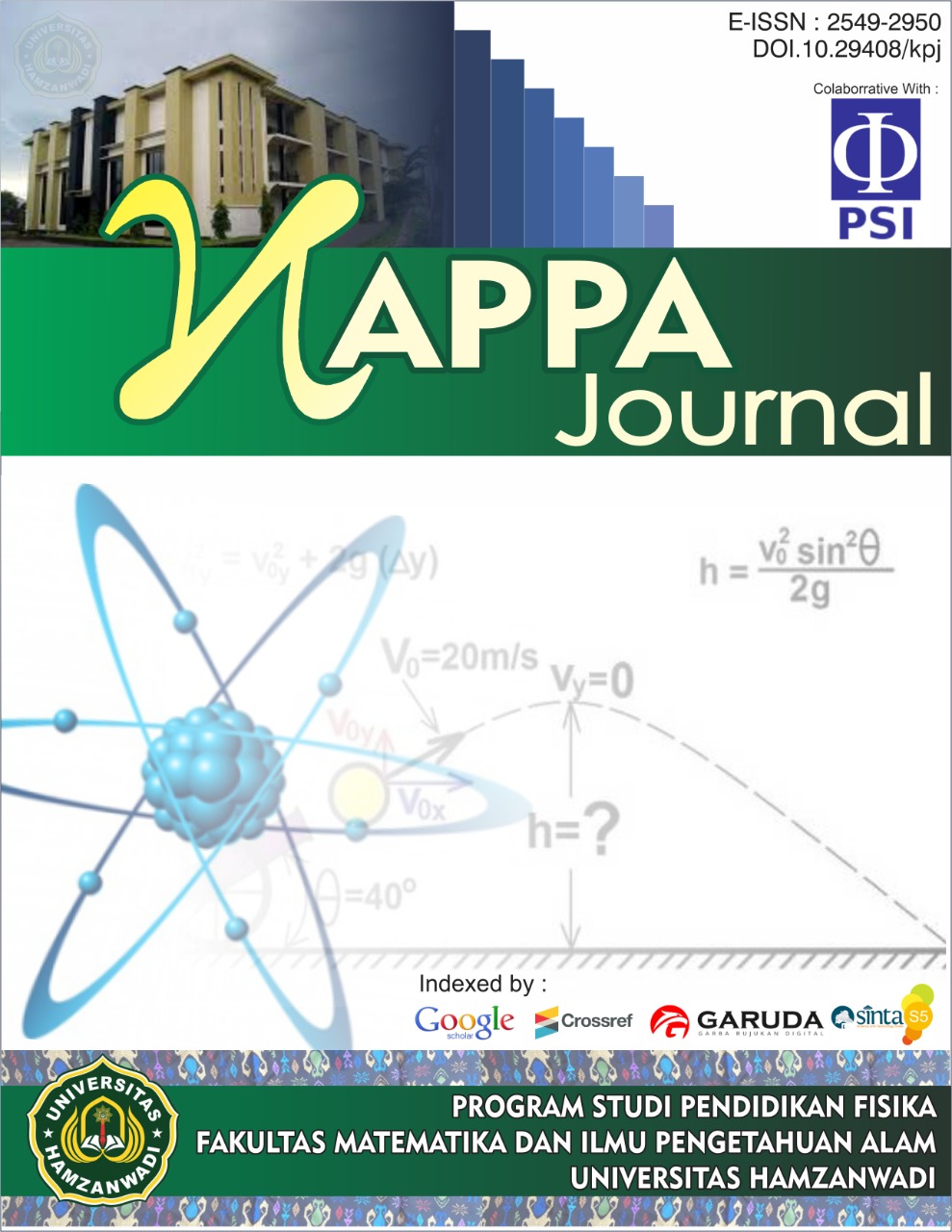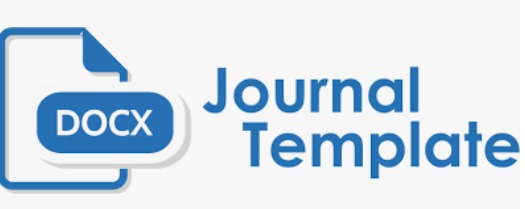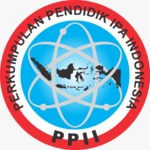Multiple Intelligence Type Profile of Prospective Physics Teacher Students: Recommendations for Lecture Methods to Create a Superior and Globally Competitive Generation
DOI:
https://doi.org/10.29408/kpj.v8i3.28740Keywords:
Multiple Intelligences, prospective teachers, lecture methodAbstract
The type of multiple intelligence possessed by students can be a consideration for lecturers in determining the right lecture method so that it can create effective learning. The effectiveness of learning has an impact on the quality of superior and competitive student competencies. This study aims to analyze the distribution of multiple intelligences of students and relate them to relevant learning methods in the Physics Curriculum Review course in the Physics Education Study Program, University of Mataram. The subjects of the study were 22 class 5C students who took the multiple intelligence test. This study uses a descriptive approach with quantitative data analysis. The study was conducted in August 2024. The instrument used to view the profile of students' multiple intelligence types can be accessed through the online platform "Aku Pintar". The results showed that intrapersonal intelligence had the highest average of 83%, followed by logical-mathematical intelligence (78%), visual-spatial (75%), and verbal-linguistic (73%). Naturalistic and Interpersonal intelligence were 71%, while Kinesthetic intelligence was 70%. Musical intelligence had the lowest average, which was 63%. Based on these findings, the recommended learning methods include Project-Based Learning, Small Group Discussion, Contextual Instruction, and Role-Play to accommodate various types of student intelligence. These methods are integrated with topics such as the history of curriculum development, review of learning models, review of the Independent Curriculum teaching module, and the Pancasila Student Profile Strengthening Project. The conclusion of the study emphasizes the importance of implementing adaptive and varied learning methods in supporting the potential of students' multiple intelligences, in order to prepare them as competent, creative, and innovative prospective teachers. In other words, the application of lecture methods used by lecturers according to the type of multiple intelligences of students will support the formation of a superior and globally competitive generation. It is recommended for lecturers to optimize project-based and collaborative approaches, and for students to actively explore their intelligence potential. This study also provides recommendations to study programs to align the curriculum with student needs and educational developments.
References
Ahdan, S., Sucipto, A., & Agus Nurhuda, Y. (2019). Game to Stimulate Children’s Multiple Intelligence Based on Android. SENTER 2019: Seminar Nasional Teknik Elektro 2019, November, 554–568.
Ansari, J. A. N., & Khan, N. A. (2020). Exploring the role of social media in collaborative learning the new domain of learning. Smart Learning Environments, 7(1), 1–16. https://doi.org/10.1186/s40561-020-00118-7
Ansyu, A., & Karundeng, M. (2023). Penerapan Model Pembelajaran Process Oriented Guided Inquiry Learning (POGIL) dengan Pendekatan Multiple Intelligence Terhadap Hasil Belajar Kimia Siswa. Oxygenius Journal of Chemistry Education, 5(2), 132–138. https://doi.org/10.37033/ojce.v5i2.617
Apriyani, N., Ariani, T., & Arini, W. (2020). Pengembangan Modul Fisika Berbasis Discovery Learning pada Materi Fluida Statis Siswa Kelas XI SMA Negeri 1 Lubuklinggau Tahun Pelajaran 2019/2020. Silampari Jurnal Pendidikan Ilmu Fisika, 2(1), 41–54. https://doi.org/10.31540/sjpif.v2i1.930
Arini, S. D., & Roesminingsih, E. (2021). Kurikulum Integrasi : Mengoptimalkan Kecerdasan Majemuk Anak. Lembaran Ilmu Kependidikan, 50(1), 1–10. https://journal.unnes.ac.id/nju/index.php/LIK/article/view/28074
Astuti, R. Z. (2022). Upaya Mengembangkan Kecerdasan Majemuk Anak Menggunakan Metode Audio Visual dan Permainan Tradisional di TK. Jurnal Cahaya Mandalika, 1(1), 1148–1160.
Bohari, L. (2020). Improving speaking skills through small group discussion at eleventh grade students. Journal of Languages and Language Teaching, 7(1), 68.
Bordei, S. (2017). How Can One Possibly Determine the Multiple Intelligences. Journal Plus Education, XVIII(November), 204–212.
Budiman, A., Samani, M., Rusijono, R., Setyawan, W. H., & Nurdyansyah, N. (2020). The Development of Direct-Contextual Learning: A New Model on Higher Education. International Journal of Higher Education, 10(2), 15. https://doi.org/10.5430/ijhe.v10n2p15
Creswell, J. W. (2012). Educational Research: Palnning, Conducting and Evaluating Quantitative and Qualitative Research. Fourth Edition. (4th ed.). Pearson.
Darmayani, I. G. A. S. (2023). Effectiveness of Small Group Discussions (SGD) to Improve Learning Outcome and Critical Thinking in Medical Student: a Literature Review. Bali Medical Journal, 12(1), 1179–1182. https://doi.org/10.15562/bmj.v12i1.4430
Erbil, D. G. (2020). A Review of Flipped Classroom and Cooperative Learning Method Within the Context of Vygotsky Theory. Frontiers in Psychology, 11(June), 1–9. https://doi.org/10.3389/fpsyg.2020.01157
Erdi, P. N., & Padwa, T. R. (2021). Penggunaan E-Modul Dengan Sistem Project Based Learning. JAVIT : Jurnal Vokasi Informatika, 1(1), 23–27. https://doi.org/10.24036/javit.v1i1.13
Harianja, S. I., & Utami, W. S. (2023). Pengaruh Modul Terhadap Hasil Belajar Mahasiswa Pada Mata Kuliah Pengembangan Kecerdasan Majemuk. Jurnal Tunas Siliwangi, 9(1), 32–43.
Herchenröther, J., Tiedemann, E., Vogel, H., & Simmenroth, A. (2021). Which teaching method is more effective in a communication course - role-playing versus simulated patients, taught by tutors or faculty staff? A randomized trial. GMS Journal for Medical Education, 38(3), 1–18. https://doi.org/10.3205/zma001450
Hidayat, S., & Nurjanah. (2022). Pengaruh Gaya Belajar Dan Kecerdasan Majemuk Terhadap Prestasi Belajar Santri. Al-Hasanah : Jurnal Pendidikan Agama Islam, 7(2), 159–181. https://doi.org/10.51729/7270
Hidayati, F. H., & Evy Wisudariani, E. W. (2023). Pengaruh Pembelajaran Berbasis Kasus (Case Based Learning) dalam Meningkatkan Kreativitas dan Kemampuan Berpikir Mahasiswa. Biodik, 9(2), 180–190. https://doi.org/10.22437/biodik.v9i2.20821
Hikmawati, Gunawan, Aminah, & Budiman, L. A. (2021). Peningkatan Kompetensi Mahasiswa Calon Guru Melalui Program Kampus Mengajar Angkatan ke-2 pada Tahun 2021 di SMPN 19 Mataram. Kappa Journal, 5(2), 277–288.
Hikmawati, H., Sahidu, H., & Ayub, S. (2021). Metode Think-Pair-Share Dengan Analisis Artikel Untuk Meningkatkan Keterampilan Berpikir Tingkat Tinggi Mahasiswa. Kappa Journal, 5(1), 20–30. https://doi.org/10.29408/kpj.v5i1.3328
Hikmawati, H., Suastra, I. W., Suma, K., & Sudiatmika, A. A. I. A. R. (2024). Expert Validation of Ethnoscience-Based Teaching Materials to Develop Student Competence in Critical Thinking and Caring Attitudes. Kappa Journal, 8(1), 85–90.
Hikmawati, & Suastra, I. W. (2021). Respon Mahasiswa Terhadap Perkuliahan Berbasis Kearifan lokal Pada Mata Kuliah Kajian Fisika Sekolah Menengah. Kappa Journal, 5(2), 34–42.
Hikmawati, & Suastra, I. W. (2022). Implementasi Model Project Based Learning untuk Meningkatkann Keterampilan Dasar Mengajar yang Dimiliki oleh Mahasiswa Calon Guru. Kappa Journal, 6(2), 166–177.
Hilala, R., Botutihe, S. N., & Usman, I. (2021). Pengembangan Buku Saku Kecerdasan Majemuk Sebagai Media Bimbingan dan Konseling Pribadi Pada Siswa SMP Negeri 1 Kota Gorontalo. Student Journal of Guidance and Counseling, 1(1), 35–52. https://doi.org/10.37411/sjgc.v1i1.867
Istidah, A., Suherman, U., & Holik, A. (2022). Peningkatan Hasil Belajar IPA Tentang Materi Sifat-Sifat Cahaya Melalui Metode Discovery Learning. Jurnal Pendidikan Indonesia : Teori, Penelitian, Dan Inovasi, 2(1), 31–40. https://doi.org/10.59818/jpi.v2i1.187
Korochentseva, A., Krasnova, E., & Moysova, O. (2020). Simulation role play as a contact work with students and its role in their communicative skills development. E3S Web of Conferences, 210(18087), 1–9. https://doi.org/10.1051/e3sconf/202021018087
Lemmetty, S., & Collin, K. (2020). Self-Directed Learning as a Practice of Workplace Learning: Interpretative Repertoires of Self-Directed Learning in ICT Work. Vocations and Learning, 13(1), 47–70. https://doi.org/10.1007/s12186-019-09228-x
Mokoginta, S. O. (2023). Penerapan Model Problem Based Learning (PBL) untuk Meningkatkan Hasil Belajar IPA di Kelas IV SD Negeri 6 Bilalang. Jurnal Ilmiah Wahana Pendidikan, 9(2), 541–549. http://jurnal.peneliti.net/index.php/JIWP/article/view/3680
Nababan, N. S., & Sagala, P. N. (2023). Penerapan Model Case Based Learning Untuk Meningkatkan Kemampuan Berpikir Kritis Matematis Siswa Kelas Viii Smp Negeri 17 Medan. Journal of Comprehensive Science, 3(1), 56–74.
Sakti, I., Nirwana, N., & Swistoro, E. (2021). Penerapan Model Project Based Learning Untuk Meningkatkan Literasi Sains Mahasiswa Pendidikan Ipa. Jurnal Kumparan Fisika, 4(1), 35–42. https://doi.org/10.33369/jkf.4.1.35-42
Sibuea, B., Lubis, M. S., Nasution, P. M. G., & Purba, A. (2023). Penerapan Metode Multiple Inteligences Untuk Meningkatkan Hasil Belajar Bahasa Inggris Siswa Sma Negeri 1 Percut Sei Tuan. Warta Dharmawangsa, 17(4), 1639–1650. https://doi.org/10.46576/wdw.v17i4.3816
Study, M. C., & Weda, S. (2024). Assessing the Impact of Contextual Teaching and Learning (CTL) Approach in Reading Instruction : A Multiple Case Study. Jpurnal of Language Teching and Learning, Linguisyics and Literature, 12(2), 921–935. https://doi.org/10.24256/ideas.
Suendarti, M., & Virgana, V. (2022). Elevating natural science learning achievement: Cooperative learning and learning interest. Journal of Education and Learning (EduLearn), 16(1), 114–120. https://doi.org/10.11591/edulearn.v16i1.20419
Sukmayanti, S., & Aliyyah, R. R. (2023). Pengelolaan Kelas Rendah pada Kurikulum Merdeka. Karimah Tauhid, 2(6), 3086-3102.
Susandi, A., & Marwan, M. (2020). Implementasi Kecerdasan Majemuk (Multiple Intelligence) di Sekolah Dasar. Jurnal Fundadikdas (Fundamental Pendidikan Dasar), 3(3), 260–271. https://doi.org/10.12928/fundadikdas.v3i3.2979
Thambu, N., Prayitno, H. J., & Zakaria, G. A. N. (2021). Incorporating Active Learning into Moral Education to Develop Multiple Intelligences: A Qualitative Approach. Indonesian Journal on Learning and Advanced Education (IJOLAE), 3(1), 17–29. https://doi.org/10.23917/ijolae.v3i1.10064
Usu, T., & Adi, A. (2021). The Effectiveness of Small Group Discussion in Teaching Reading Comprehension of Narrative Text at X Grade in SMAN 1 Wolowae. Journey, 4(1), 11–18.
Vahlepi, S., Helty, & Tersta, F. W. (2021). Implementasi Model Pembelaaran berbasis Case Method dan Project Based Learning dalam rangka mengakomodir Higher Order Thinking Skill mahasiswa dalam Mata Kuliah Psikologi Pendidikan Bahasa Arab di Masa Pandemi. Jurnal Pendidikan Tabusai, 5(3), 10153–10159.
Wahyuni, E., & Fitriana, F. (2021). Implementasi Model Pembelajaran Project Based Learning (PjBL) dalam Meningkatkan Hasil Belajar Peserta Didik Pada Mata Pelajaran Pendidikan Agama Islam SMP Negeri 7 Kota Tangerang. Tadarus Tarbawy, 3(1), 320–327. https://doi.org/10.31000/jkip.v3i1.4262
Wilson, S. D. (2018). Implementing Co-Creation And Multiple Intelligence Practices To Transform The Classroom Experience. Contemporary Issues in Education Research (CIER), 11(4), 127–132. https://doi.org/10.19030/cier.v11i4.10206
Yavich, R., & Rotnitsky, I. (2020). Multiple intelligences and success in school studies. International Journal of Higher Education, 9(6), 107–117. https://doi.org/10.5430/ijhe.v9n6p107
Zahroh, U., Rachmawati, N. I., Darmayanti, R., & Tantrianingrum, T. (2023). “Guidelines” for collaborative learning in 21st century education at Madrasah Tsanawiyah. Assyfa Journal of Islamic Studies, 1(2), 155–161. https://doi.org/10.61650/ajis.v1i2.239
Zakiah, N. E., & Fajriadi, D. (2020). Hybrid-PjBL: Creative thinking skills and self-regulated learning of pre-service teachers. Journal of Physics: Conference Series, 1521(3), 1–7. https://doi.org/10.1088/1742-6596/1521/3/032072
Downloads
Published
Issue
Section
License
Copyright (c) 2024 Kappa Journal

This work is licensed under a Creative Commons Attribution-ShareAlike 4.0 International License.
Semua tulisan pada jurnal ini menjadi tanggungjawab penuh penulis. Jurnal Kappa memberikan akses terbuka terhadap siapapun agar informasi dan temuan pada artikel tersebut bermanfaat bagi semua orang. Jurnal Kappa dapat diakses dan diunduh secara gratis, tanpa dipungut biaya, sesuai dengan lisensi creative commons yang digunakan








